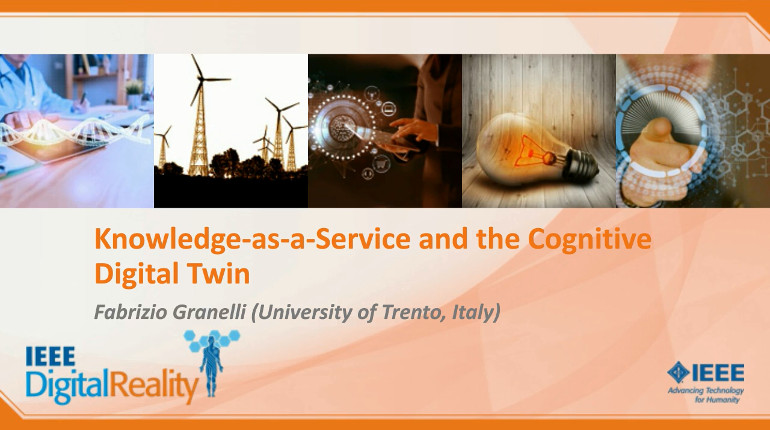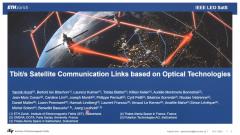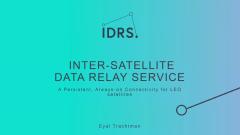
This video program is a part of the Premium package:
IEEE Digital Reality: Knowledge-as-a-Service and the Cognitive Digital Twin
- IEEE MemberUS $10.00
- Society MemberUS $0.00
- IEEE Student MemberUS $10.00
- Non-IEEE MemberUS $20.00
IEEE Digital Reality: Knowledge-as-a-Service and the Cognitive Digital Twin
This webinar will introduce the concept of Knowledge-as-a-Service (KaaS). Indeed, KaaS is a computing service that delivers knowledge to users, as opposed to data or information. KaaS enables technologists and engineers to make knowledge live and evolving on the web by allowing users to learn directly from elaborated knowledge, for example, in the form of knowledge graphs.
By merging KaaS with Artificial Intelligence, it is then possible to define the concept of a Cognitive Digital Twin. A complete cognitive digital twin will act similarly to AI that can make its own decisions, process thoughts, and execute actions, just like a real, functioning organism.
This webinar will describe potential scenarios for the utilization of the Cognitive Digital Twin and introduce current activities within IEEE in this area.
This webinar will introduce the concept of Knowledge-as-a-Service (KaaS). Indeed, KaaS is a computing service that delivers knowledge to users, as opposed to data or information. KaaS enables technologists and engineers to make knowledge live and evolving on the web by allowing users to learn directly from elaborated knowledge, for example, in the form of knowledge graphs.
By merging KaaS with Artificial Intelligence, it is then possible to define the concept of a Cognitive Digital Twin. A complete cognitive digital twin will act similarly to AI that can make its own decisions, process thoughts, and execute actions, just like a real, functioning organism.
This webinar will describe potential scenarios for the utilization of the Cognitive Digital Twin and introduce current activities within IEEE in this area.
 Cart
Cart Create Account
Create Account Sign In
Sign In





